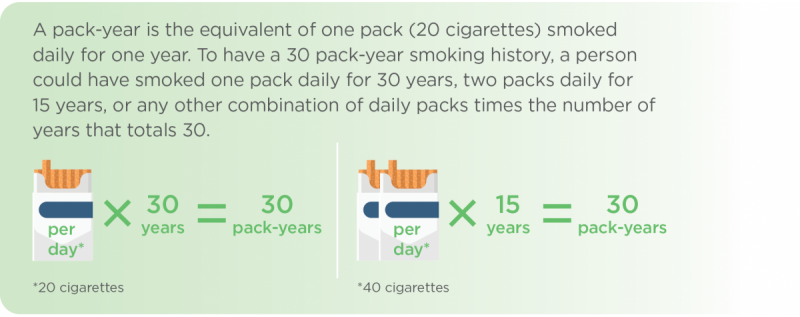The point at which lung cancer is diagnosed plays a key role in treatment and survival. The average 5-year survival rate for lung cancer diagnosed while still localized (stage I) is 61%. However, when it has spread to other organs of the body (such as the brain or liver) and is classified as distant, the 5-year survival rate drops to 7%.
So, how is lung cancer diagnosed early to increase survival?
Early Detection of Lung Cancer
The goal of early detection is finding lung cancer at a stage where surgery, radiation therapy, immunotherapy, or targeted therapies can be offered when the cancer is in its most treatable form. This includes stage I, where the chances of survival are highest but when symptoms are unlikely.
Early detection, and yearly screenings, mean checking for cancer before there are any symptoms. Thankfully, you don’t need to guess whether or not you should get screened. There are clear lung cancer screening criteria, and everyone who qualifies should talk with their doctor about getting their yearly screening scheduled.
The US Preventive Services Task Force suggests annual lung cancer screenings for adults who:
- Are between 50-80 years old, and
- Have a 20 pack-year smoking history, and
- Currently smoke or have quit within the past 15 years, and
- Have no symptoms of lung cancer (asymptomatic)

Insurance covers the initial screening costs (not all Medicaid programs cover screening) for people who meet these criteria. However, other risk factors for lung cancer include exposure to radon, asbestos, air pollution, radiation therapy, as well as family history of lung cancer or lung disease and diet. For people with these risk factors who want to get screened, insurance may not cover the costs, but talking with your doctor is still suggested.
What Is Lung Cancer Screening?
A typical lung cancer screening test involves a low-dose CT scan, which is painless, noninvasive, and takes less than a minute. This scan takes photos of the lungs and helps doctors see if there are any abnormalities or masses. This initial low-dose CT scan does not determine if you have cancer, but is used to set a baseline and help determine if further testing is needed.
Lung nodules, or masses that are detected by low-dose CT scans, are actually quite common and the vast majority are noncancerous. The size, density, shape, and rate of growth of these nodules are how doctors determine if they need further attention and follow-up tests.
Just because your first scan has lung nodules visible does not mean you have cancer. Your doctor will analyze the scan results and give you further details about what is needed next. The most important reason to schedule your first scan is to set this baseline so when you come back for your next yearly scan, your doctor can compare the results to see if anything has changed.
What Do My Lung Cancer Test Results Mean?
If no nodules or abnormalities are found, no further testing is needed and your next screening can be done in 12 months. If nodules are found, your doctor may schedule a follow-up test depending on the type of nodules present.
When your doctor analyzes your results, they will look at the size, density, and shape of the lung nodules on your scan. These are the details your doctor will focus on and give you specific information about.
If a follow-up test or scan is your doctor’s recommendation, it’s likely so they can compare changes in lung nodules to previous scans to help determine if there is a reason to suspect cancer. Again, this is why scheduling your first lung cancer screening is so important.
I Have Lung Cancer, Now What?
The most important thing to understand if you’ve recently been diagnosed with lung cancer is that there’s a community of support for you at LUNGevity.
Facebook groups, virtual meetups, webinars, conferences, mentoring, and the Lung Cancer HELPLine are all designed with your needs and wants in mind. We’ll help you find the right team, the right tests, and the right treatment.
While it is best to ask your doctor questions, it might be hard to know where to start. We have a comprehensive list of questions to ask your doctor that can help get you started, and our oncology social workers are available if you want personalized help over the phone.
Stories on Living with Lung Cancer:

